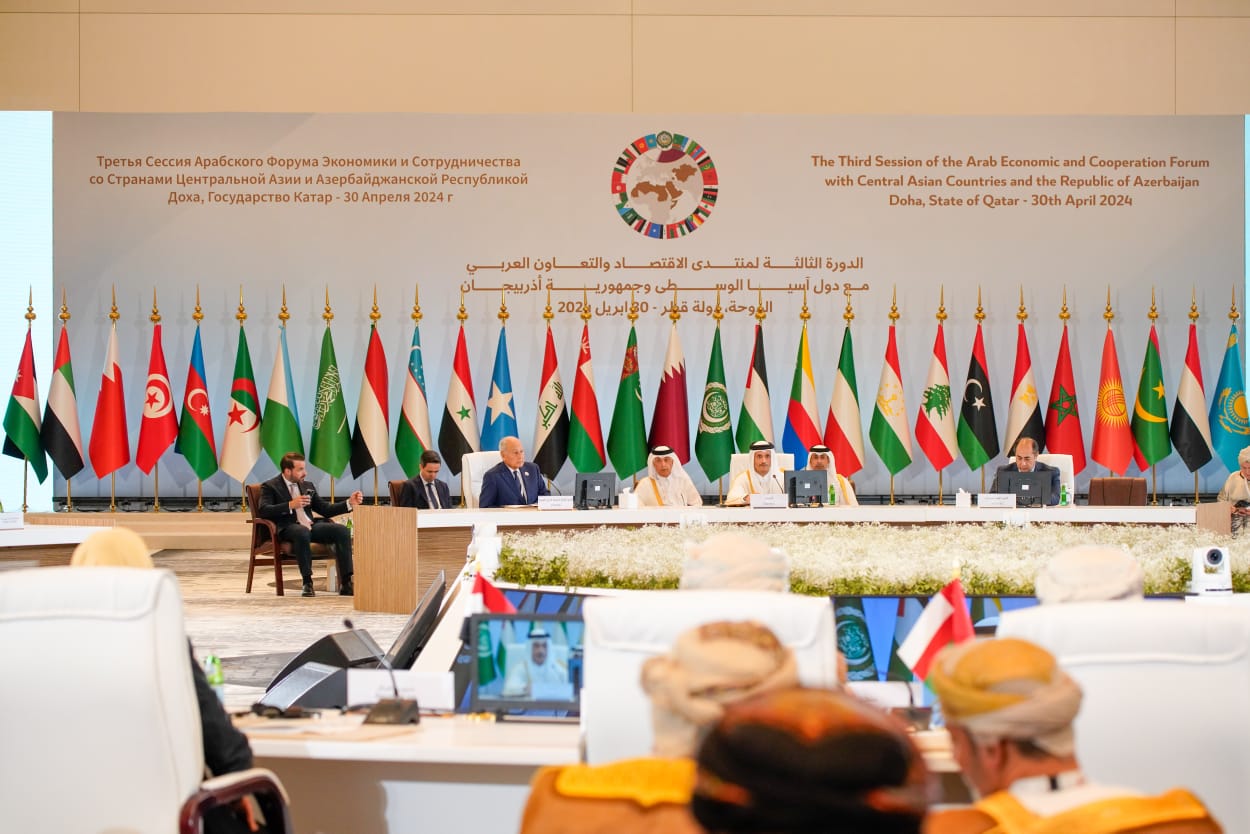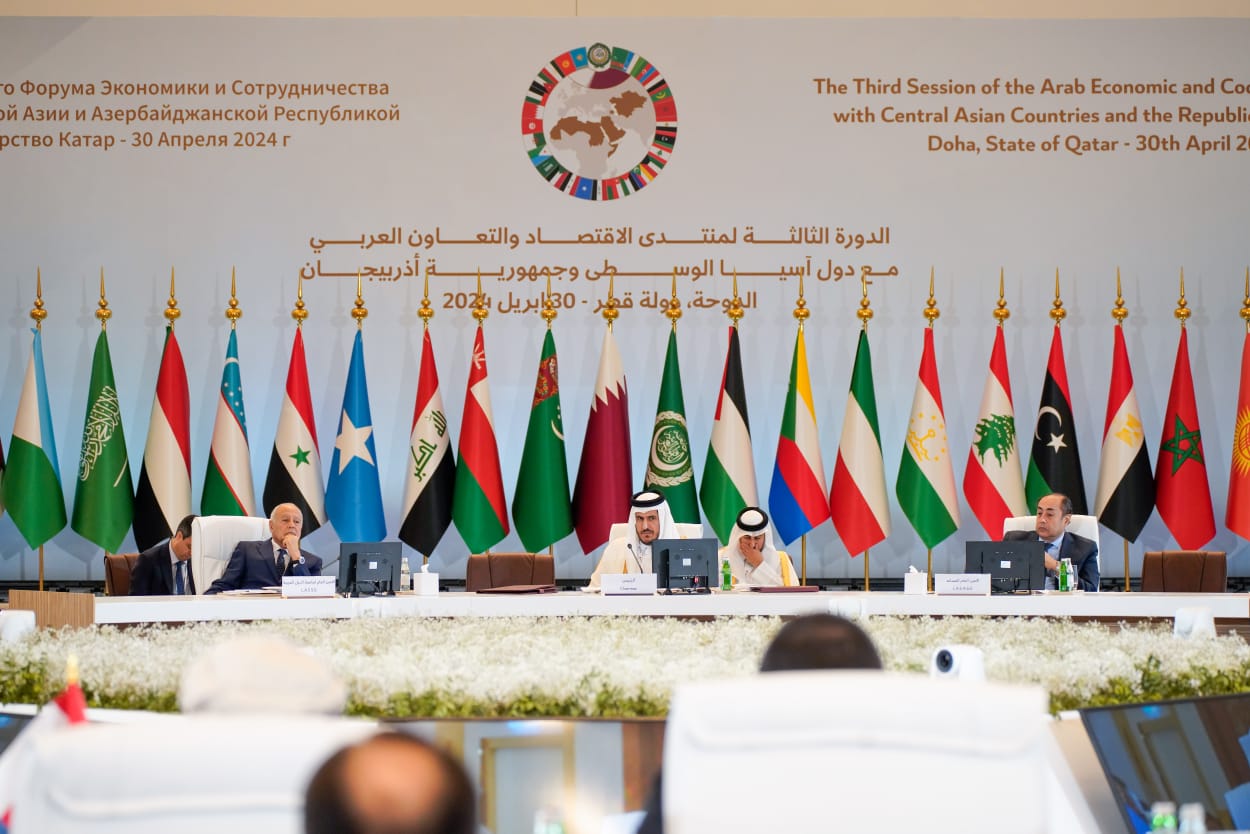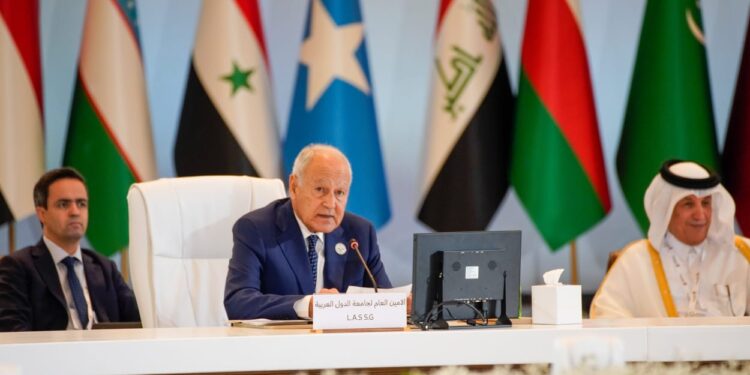The third session of the Arab Financial and Cooperation Discussion board with Central Asian international locations and the Republic of Azerbaijan concluded in Doha, Qatar. The discussion board, which noticed the participation of international ministers from Arab nations, Azerbaijan, Uzbekistan, Tajikistan, Turkmenistan, the Kyrgyz Republic, Kazakhstan, and the Secretary Basic of the Arab League, Mr. Ahmed Aboul Gheit, culminated within the Doha Declaration—a doc portraying the collective stance on numerous geopolitical and financial points.
Key Highlights of the Doha Declaration:
- Funding Applications: The declaration units the stage for future funding applications geared toward bolstering Arab cooperation with Central Asian international locations and Azerbaijan.
- Kuwait’s Function: It acknowledges Kuwait’s initiative to host the upcoming strategic dialogue between the Gulf Cooperation Council (GCC) and Central Asian international locations in 2025.
- Financial Prospects: The declaration reiterates the historic, spiritual, and cultural connections between the areas and highlights the financial potential stemming from pure assets and numerous sectors.
- Political Options: It requires consensual political options to deal with crises within the Arab world, selling dialogue and nationwide reconciliation.
- Palestinian Trigger: The declaration denounces the Israeli occupation’s actions towards Palestinians and advocates for a global peace convention to resolve the battle.
- Help for Azerbaijan-Armenia Normalization: It endorses the continued normalization course of between Azerbaijan and Armenia, emphasizing the necessity for a peace treaty and addressing the landmine risk.
Stance on Somalia:
The declaration included a number of factors affirming assist for Somalia’s sovereignty:
- The ministers opposed any exterior interference in nationwide affairs, upholding the rules of the United Nations and worldwide legislation.
- They backed Somalia’s efforts to safeguard its independence and territorial integrity, as outlined within the United Nations Constitution and the Arab League Constitution.
- The ministers totally supported the Somali authorities’s rejection of the settlement signed by Ethiopia and the “Somaliland” administration on January 1, 2024.
- They labeled the settlement as a blatant violation of worldwide legislation and a risk to regional peace and stability.
- The ministers disapproved of the settlement and any ensuing authorized, political, business, and army actions, calling for world condemnation and rejection.
- In addition they denounced makes an attempt to leverage the settlement to change the political panorama within the Gulf of Aden, Somalia’s shoreline, and the Pink Sea, citing safety considerations for Arab nations and regional motion.
The Doha Declaration serves as a pivotal second in worldwide diplomacy, reinforcing the collective dedication of Arab and Central Asian international locations to uphold the rules of sovereignty and territorial integrity. The unequivocal assist for Somalia’s stance towards the Ethiopia-Somaliland settlement displays a broader consensus on respecting nationwide borders and fostering regional stability.
This declaration not solely strengthens Somalia’s place on the worldwide stage but in addition units a precedent for worldwide cooperation primarily based on mutual respect and adherence to worldwide legislation. Because the world watches, the influence of this solidarity will undoubtedly resonate throughout diplomatic circles, probably shaping future geopolitical landscapes.













